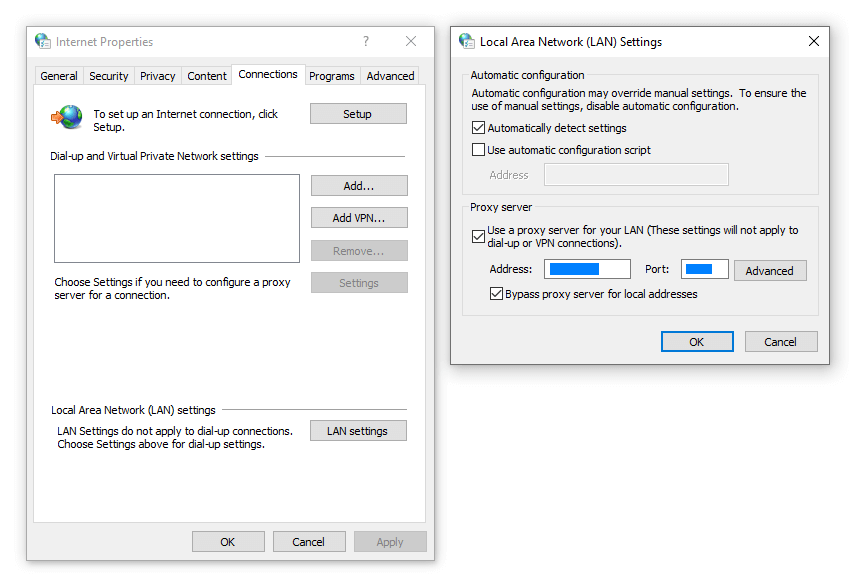In the current digital age, online security is vital than ever. As we spend amount of time on the internet, safeguarding our personal information and maintaining our online privacy has emerged as a priority for numerous users. One powerful way to enhance your online security is by using proxy servers. These robust tools not only help to mask your IP address but also provide different levels of anonymity and protection against suspected threats.
However what exactly is a proxy server, and how does it function? For individuals unfamiliar to the concept, a proxy server acts as an mediator between your device and the internet. It transmits your internet traffic through its own servers, enabling users to browse the web without directly revealing their identity. In this article, we will investigate the benefits of proxy servers, how they can improve your online security, and the different types available to users. Regardless of whether you are looking to protect your personal data, access location-restricted content, or improve your overall online experience, comprehending proxy servers is important for enhancing your online security.

Grasping Proxy Servers as well as Their Types
A proxy server functions like an intercessor that connects a client's device and the internet. By sending requests via its system, a proxy server can mask the client's IP address while also offering extra features such as content filtering, logging, as well as improved security. This method enables users to access content without revealing their true self, something that is particularly important for privacy as well as anonymity on the internet.
There are several varieties of proxy server systems, each fulfilling different functions as well as applications. Hypertext Transfer Protocol proxies are built specifically for internet traffic and can execute tasks such as caching websites for quick access. SOCKS servers, conversely, accommodate a wider variety of communication protocols and are frequently used for applications that require complete anonymity. Transparent proxies, as the name suggests, do not modify inquiries or responses, making them ideal for overseeing business network traffic and filtering content without any user intervention.
Understanding the differences between these proxy server categories is essential for selecting the appropriate one for your needs. While Hypertext Transfer Protocol proxies work well for browsing the web, Socket Secure servers are better appropriate for activities such as video gaming and P2P sharing. Knowing your particular requirements can help you choose a proxy that enhances both your online usage and security.
Benefits of Proxy Servers for Security and Privacy
Proxies serve as intermediaries connecting individuals with the web, offering an essential layer of safety and privacy. By routing one's web data via a proxy, your real IP address is hidden, making it challenging for website s and online services to track the user's identity or location. Such anonymity is key in safeguarding sensitive information and ensuring privacy while surfing the web, particularly when on open Wi-Fi connections that are prone to cyberattacks.
Furthermore, proxies can filter out dangerous content and shield users from threatening websites. By blocking entry to known threats and malware, they boost overall online security. Numerous proxy servers also offer options for HTTPS and additional encryption protocols, making sure that data sent between the user's device and the proxy is secure. This added layer of protection is crucial for protecting personal data and monetary information against possible breaches.
In addition enhancing safety, proxy servers contribute to more secure browsing experiences by enabling users to access geo-restricted content without exposing their actual location. This allows individuals can access international content while keeping their online activities confidential. Through utilizing proxy servers, users enjoy greater liberty and convenience online, while maintaining a clear focus on their privacy and security.
Gateway Servers for Streaming and Online Play
Proxy servers have emerged as a widespread tool for individuals who are consuming media and gaming enthusiasts, providing a way to circumvent content barriers and access a broader range of content. Numerous streaming services impose geo-restrictions on their content, restricting access based on the user's location. By using a proxy, users can reroute their connection through a different region, effectively tricking the platform into thinking they are accessing media from a legitimate location. This not only opens up a collection of programs and movies but also enables users to enjoy their favorite content without any interruptions.
In the gaming world, proxies serve a dual purpose. They enhance user experience by minimizing lag and improving connection speeds through optimized routing. Gamers often face issues with IP bans due to violating terms of service or due to being marked as problematic. By utilizing proxy servers, gamers can disguise their original IP address, aiding them avoid bans while maintaining their gaming activities anonymous. This contributes to a more pleasurable online gaming experience without the worry of being punished for their conduct.
Nonetheless, it's important to choose the right type of solution for media consumption and online play needs. Not all proxies are developed the same; some might result in slower speeds or be easily detected by streaming platforms. Users should look for trustworthy solutions that are efficiently designed for high-speed connections and can handle high data traffic to guarantee seamless media access and gaming experiences. With the proper setup, proxies can drastically enhance online interactions by providing access to more content and protecting users from undesirable repercussions.
